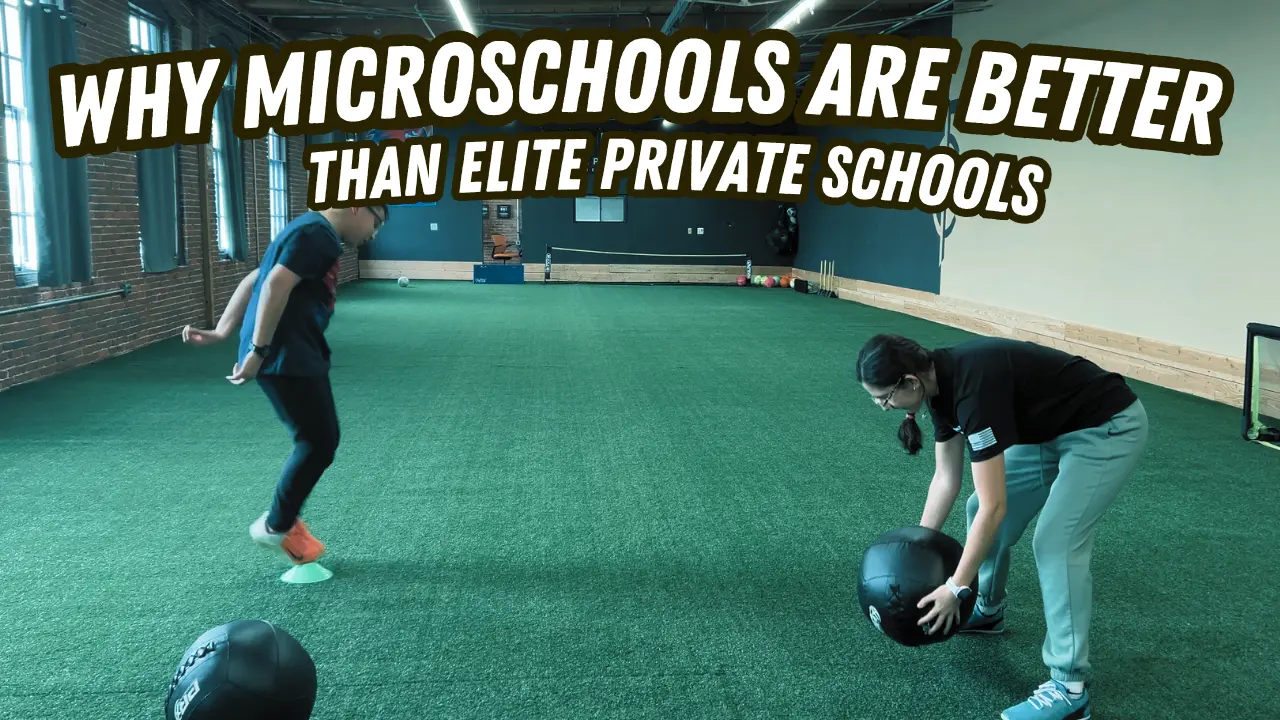Microschools for Student-Athletes: Benefits, Pros and Cons, and How They Support Athletic Success
Microschools offer a unique educational approach for student-athletes seeking to balance rigorous athletic training with academic growth. Designed to provide flexibility, personalized instruction, and a supportive community, microschools can help families dissatisfied with traditional models discover a better way to nurture their child’s academic and athletic ambitions. In this guide, we’ll explore the benefits, drawbacks, and specific ways microschools empower student-athletes to thrive. Whether you’re looking to optimize training schedules or ensure academic excellence, microschools present innovative solutions tailored to the dynamic lives of young athletes and their families.
Key Highlights
- Microschools offer flexible, personalized education designed to support student-athletes’ academic and athletic schedules.
- Small class sizes provide individualized attention, fostering stronger relationships and tailored support for each student.
- Personalized learning helps busy athletes master subjects at their own pace without compromising training or competitions.
- Active parent and community involvement strengthens support networks and enhances the whole-child development experience.
- Key questions help families ensure microschools align with their child’s academic, athletic, and social needs.
What is a Microschool? An Innovative Solution for Student-Athletes
Microschools are transforming the educational landscape, offering a fresh approach for students, especially student-athletes, who need more flexible and personalized schooling. Unlike traditional settings, microschools operate with smaller groups, usually led by dedicated teachers who provide high-quality, personalized lessons. As a homeschool mom, engineer, and small business owner, I’ve seen how this innovative approach supports not just the child’s academic journey but also their athletic ambitions. Microschooling allows for a flexible curriculum, integrating learning and athletic commitments without sacrificing educational rigor.
This unique educational model emphasizes accountability, ensuring students stay engaged and motivated. Parents looking for a community that prioritizes both educational success and life skills development will appreciate how microschooling creates nurturing settings. Many microschooling providers focus on tailored support, helping students build skills needed for both academics and athletics. Through engaging lessons and a personalized approach, students gain confidence, thrive in their schooling, and benefit from a curriculum that adapts to their changing needs. Consider the possibilities, microschools empower your child with a quality education, flexible schedule, and the support crucial for athletic success.

The Impact of a Smaller Class on Academic and Athletic Achievement
The size of a class can dramatically influence both academic and athletic growth, especially for student-athletes seeking to balance school and sports. In a smaller class, every student receives attention that would be nearly impossible in a traditional school setting. Microschools are redefining what quality schooling looks like, creating learning communities where flexibility and support are core values. By focusing on a flexible curriculum and close-knit settings, teachers can better understand kids’ individual needs, supporting both learning and athletic schedules. This environment enables students to develop essential skills, boost achievement, and thrive within a supportive community specifically designed to help them reach their full potential in school and beyond.
How Close-Knit Learning Environments Enhance Focus and Flexibility
In a microschool, the close-knit setting nurtures deeper relationships between students and teachers, fostering trust and stronger communication within the class. Students benefit as teachers notice learning styles, strengths, and challenges, allowing them to tailor lessons and support in real time. This personalized approach ensures students don’t just feel like another face in a crowded class but rather like valued community members. The flexibility inherent in microschools means learning can adapt to kids’ athletic demands, letting student-athletes manage rigorous training without missing out on quality educational experiences. It’s not just about academic achievement; it’s about whole-child development.
This approach helps build self-motivation, independence, and skills vital for managing diverse commitments. Parent involvement is often higher in these environments, so families actively contribute to the school community, further supporting students’ growth. Choosing a microschool with a smaller class and flexible curriculum doesn’t just enhance focus; it transforms the foundational experience, making sure kids thrive in all areas, academics, athletics, and life skills, by delivering education tailored for their world.
“… it transforms the foundational experience, making sure kids thrive in all areas, academics, athletics, and life skills, by delivering education tailored for their world.”
Adopting a Personalized Approach: Tailoring Education to the Demands of Athletics
For student-athletes, success in both classroom and competition demands a schooling model that embraces flexibility, engagement, and personalized learning. Microschools lead the way by designing educational paths that acknowledge each child’s unique challenges and strengths. Drawing from experience as a homeschool mom, engineer, and small business owner, I recognize how personalized learning in microschools offers hands-on, nurturing support for young athletes. Teachers, students, and families collaborate closely to build achievement through a flexible curriculum that adapts as needs change. With a focus on skill-building, accountability, and engaging lessons, a personalized approach ensures every child receives the targeted support necessary to thrive in their education and athletic journey.
Unlocking the Benefits of Personalized Learning for Busy Athletes
Personalized learning is the cornerstone of the microschool experience, especially when it comes to supporting athletes with demanding practice and competition schedules. A personalized approach means the curriculum isn’t a one-size-fits-all template—it’s designed around your child’s strengths, interests, and learning pace. Dedicated teachers work hand-in-hand with each student, adjusting lessons for maximum engagement while ensuring academic standards are met. This level of personalized support empowers children to develop essential skills at their own rhythm, creating space for mastery in both education and sports.
Parents of student-athletes often worry that a rigid school schedule could force their child to compromise either learning or training. Microschools solve that dilemma by providing accountability and flexibility, so students aren’t left behind if they need to travel for a tournament or dedicate extra time to improve their performance. The benefits ripple beyond the classroom: families are more involved, teachers nurture every child’s growth, and children enjoy a schooling experience that’s both motivating and relevant. With flexible curriculum options and a focus on the whole child, microschools help student-athletes achieve in class and on the field, an engaging and personalized learning journey that sets the foundation for lifelong achievement.
Key Questions for Parents Considering Microschools
As parents explore microschools for their child, it’s essential to ask key questions that reflect your family’s specific needs. Begin by considering what you want most from a school setting:
- Is it a smaller class, flexible curriculum, or a community-focused environment? Ask potential microschooling providers about their approach to supporting student-athletes. Inquire about how the curriculum accommodates athletic schedules and how much personalized support your child will get.
- Families should also understand the level of parent and community involvement required in different microschool settings. What type of communication exists between families and teachers, and how does it impact your child’s growth?
- Another key aspect involves the provider’s experience, how do they foster support networks, social opportunities, and maintain academic rigor?
- Finally, clarify how the microschool measures success for both academics and athletics.
The right questions empower families, helping you choose a microschool that offers a nurturing class, robust support, and a curriculum designed to help your child thrive. If you’re seeking a school community that values flexibility and accountability, now’s the perfect time to connect with a provider and explore how microschooling can benefit your family.
Microschools present a transformative opportunity for student-athletes to excel academically and athletically without compromise. By offering flexible schedules, personalized support, and a close-knit community, these innovative schools meet the unique challenges faced by athletic families. If you’re seeking a practical, nurturing environment that honors your child’s passion and ambitions, microschools might be the key to unlocking their true potential. Ready to explore more? Contact me for a list of Microschools around the country I know are already doing this.




